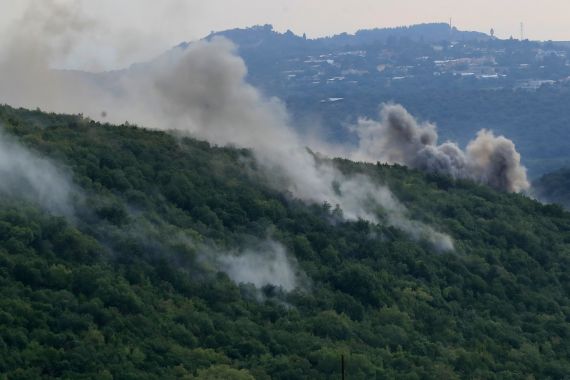In the wake of escalating tensions between Israel and Hamas in the Gaza Strip, a wave of global corporations are making strategic decisions to safeguard their employees and maintain business operations. From suspending flights to redefining work environments, these companies are showing resilience and adaptability amidst the ongoing conflict.
Travel Industry Navigates Turbulence
The travel industry, with its extensive global reach, has been significantly impacted by the Israel-Hamas conflict. Companies spanning from airlines to cruise operators are making critical decisions to ensure the safety of passengers and employees.
Several major airlines from Asia, Europe, and the United States have suspended direct flights to Tel Aviv, citing concerns over the volatile situation. Delta Air Lines, a prominent US carrier, has canceled flights to Tel Aviv until the end of October. Meanwhile, Israel’s flagship carrier, El Al, is operating extra flights to repatriate Israeli reservists as the country faces the largest mobilization in its history. Cruise operators such as Royal Caribbean, Carnival, and Norwegian Cruise Line have adjusted itineraries, and in some cases, modified or redirected trips to Israel, demonstrating the adaptability of the travel industry during these trying times.
Energy Sector Faces Production Disruptions
The energy sector, a crucial pillar of the global economy, has witnessed disruptions as a result of the Israel-Hamas conflict. Chevron, the second-largest oil and gas producer in the US, has been ordered by Israel’s Ministry of Energy to shut down the Tamar natural gas field off the country’s northern coast. Such measures not only reflect the immediate impact on the industry but also underscore the potential ramifications for global energy supply chains.
Banking and Finance Giants Opt for Remote Work
Financial institutions are not immune to the repercussions of the Israel-Hamas conflict. Major players like Goldman Sachs, JPMorgan Chase, Bank of America, and Morgan Stanley have implemented remote work arrangements to safeguard their employees and monitor the situation closely. Citigroup, with its substantial presence among foreign financial institutions in Israel, has allowed its staff in the country to choose between working from home or the office. These measures demonstrate how the banking sector is swiftly adapting to maintain essential operations amidst regional turmoil.
Logistics and Tech Industries Unfazed
In the logistics sector, Adani Ports and global delivery firm FedEx have adjusted their operations in response to the conflict, closely monitoring the situation and ensuring business continuity. FedEx has temporarily suspended services in Israel, while UPS has temporarily suspended flights, albeit with contingency plans to ensure prompt delivery of shipments once it is safe to do so.
In the tech industry, Nvidia, the world’s largest maker of chips used for artificial intelligence and computer graphics, has canceled an AI summit scheduled to take place in Tel Aviv. This highlights the adaptability of tech companies as they pivot to prioritize safety and global stability.
Consumer and Retail Chains Feel the Impact
Clothing giants H&M and Inditex, the owner of Zara, have temporarily closed their stores in Israel and extended return timeframes, showing their commitment to the safety of employees and customers.
Pharmaceutical Industry Ensures Supply Chain Resilience
Pharmaceutical company Eli Lilly and Co has proactively stated its commitment to closely monitoring the situation and taking all necessary steps to guarantee the safety of its staff. Their unwavering dedication to an uninterrupted supply of essential medicines to patients in the region showcases the pharmaceutical industry’s resilience and determination.
In conclusion, the global response to the Israel-Hamas conflict demonstrates the adaptability and resilience of international corporations. From the travel industry’s pragmatic approach to disruptions in energy production and financial sector adaptability, businesses worldwide are navigating these turbulent times by prioritizing safety, while ensuring minimal disruption to their essential services.
















